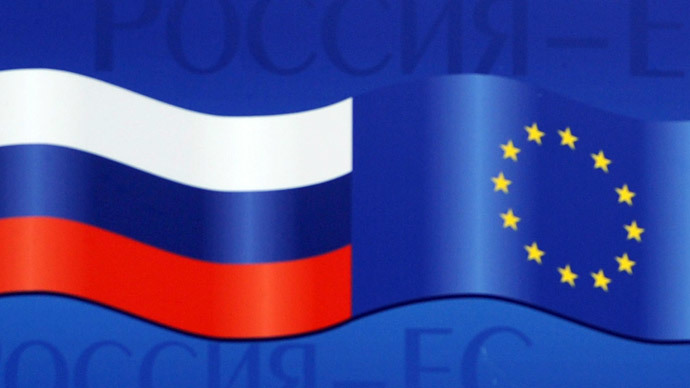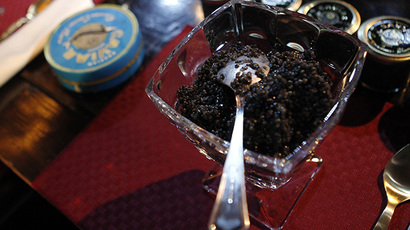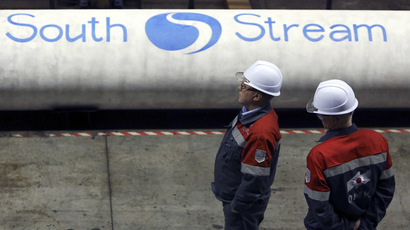EU sanctions on Russia could push gas prices up 50% - World Bank

Russia and the EU would both suffer if sanctions escalate, energy markets the most, according to a World Bank report. The loss of the European market would cut Russian government revenue by 10 percent of GDP, and European gas prices would jump 50 percent.
Most dependent EU countries could see higher gas prices. Countries from Central and South East Europe like Germany, Italy, Hungary, and Poland are up to 80 percent dependent on Russian gas imports, says the World Bank.
Increased tension between Russia and the EU is a key downside risk to regional forecasts.
“Should tensions further escalate, more intrusive sanctions, possibly interrupting trade and banking flows, cannot be ruled out,” the World Bank report said. “Given the close economic interdependence between the EU and Russia, the escalation of sanctions would likely impose large economic costs, damaging recoveries in both.”
In Russia, oil revenues represent 9 percent of GDP and a quarter of government revenues, and “a loss of EU export markets could reduce government revenues by 10 or more percent of GDP,” according to World Bank analytics.
Europe depends on Russia for nearly 30 percent of its natural gas supplies. In case of supply disruption or sanctions, the economic costs could be high. Additional LNG imports to Europe from elsewhere in the world would boost global demand and prices.
However even assuming no boost to LNG prices, EU import costs would rise by 50 percent or about 0.15 percent of GDP says the report. The losses would be much higher for major importers.
Russian economic growth in 2014 is expected to be at 0.5 percent. The longer outlook forecast is a bit more optimistic with 1.5 percent in 2015 and 2.2 percent in 2016.
Global GDP growth is projected to gradually rise from 2.4 percent in 2013 to 2.8 percent in 2014, 3.4 percent in 2015 and 3.5 percent in 2016.
The World Bank has revised down its forecast for economic growth in the developing world this year from 5.3 percent to 4.8 percent. The report shows that 2014 will become the third consecutive year of growth below 5 percent and urges developing nations to make economic reforms in order to boost growth potential. 2015 will come with a gradual GDP growth by only 5.5 percent.
“The global economy got off to a bumpy start this year buffeted by poor weather in the United States, financial market turbulence and the conflict in Ukraine,” says the document.
Overall the Ukraine situation is estimated to have eroded 1 percentage point of growth among low and middle-income countries in the region. In Central Asia much weaker Russian growth has slowed the economies there because it is a major trading partner, and a source of remittances. Declining metal and mineral prices and domestic capacity constraints have also affected the economy.
High-income countries will experience 1.9 percent growth this year compared to 1.3 percent in 2013 and 2.5 percent by 2016, becoming the main impetus for acceleration.
High-income economies are projected to inject an additional $6.3 trillion to global demand over the next three years, which is significantly more than the $3.9 trillion increase they contributed during the past three years, and more than the expected contribution from developing countries.















